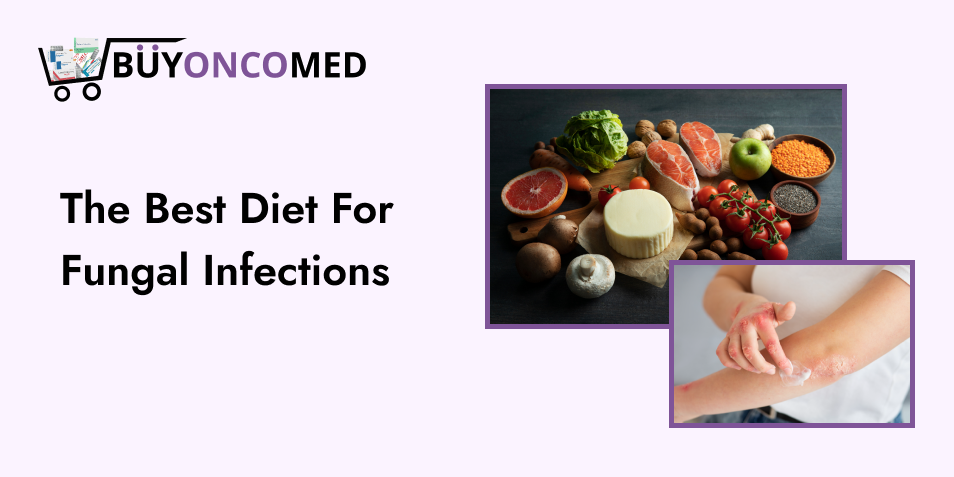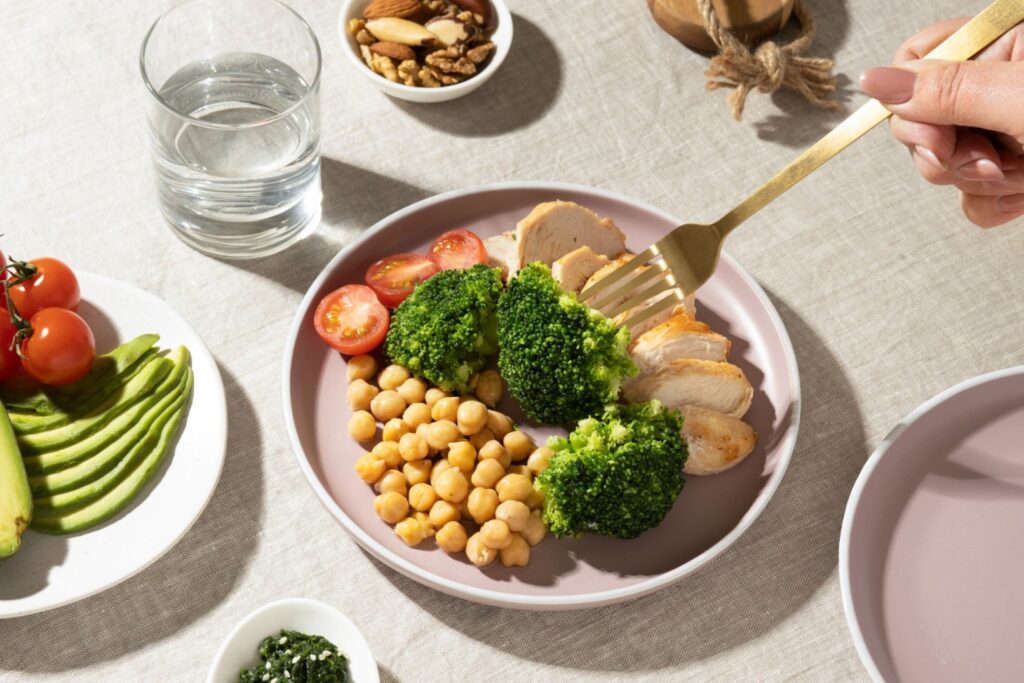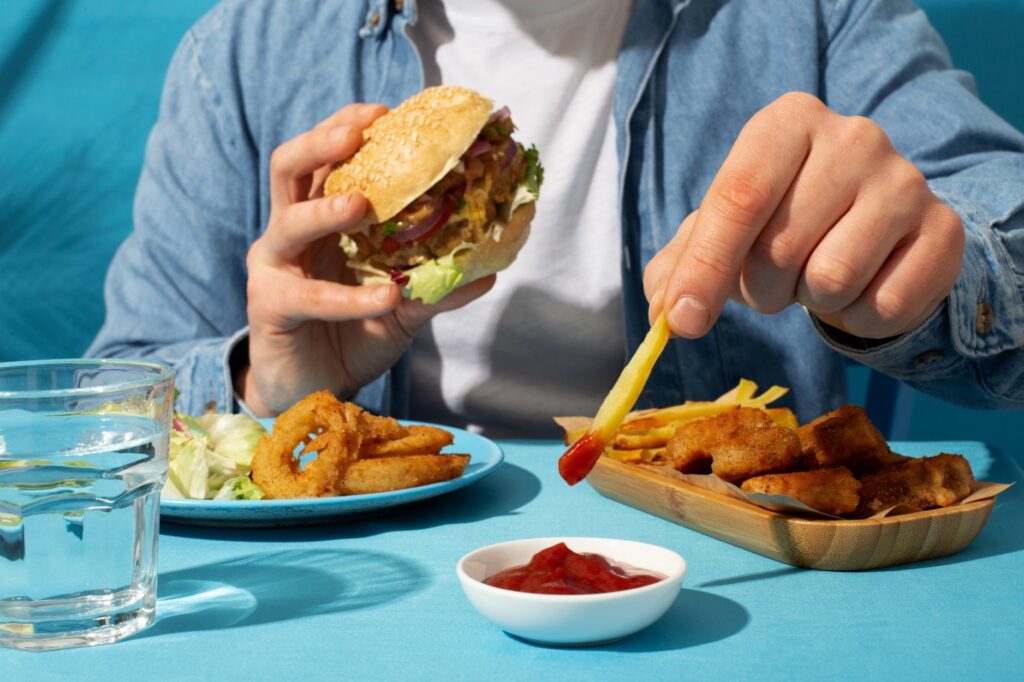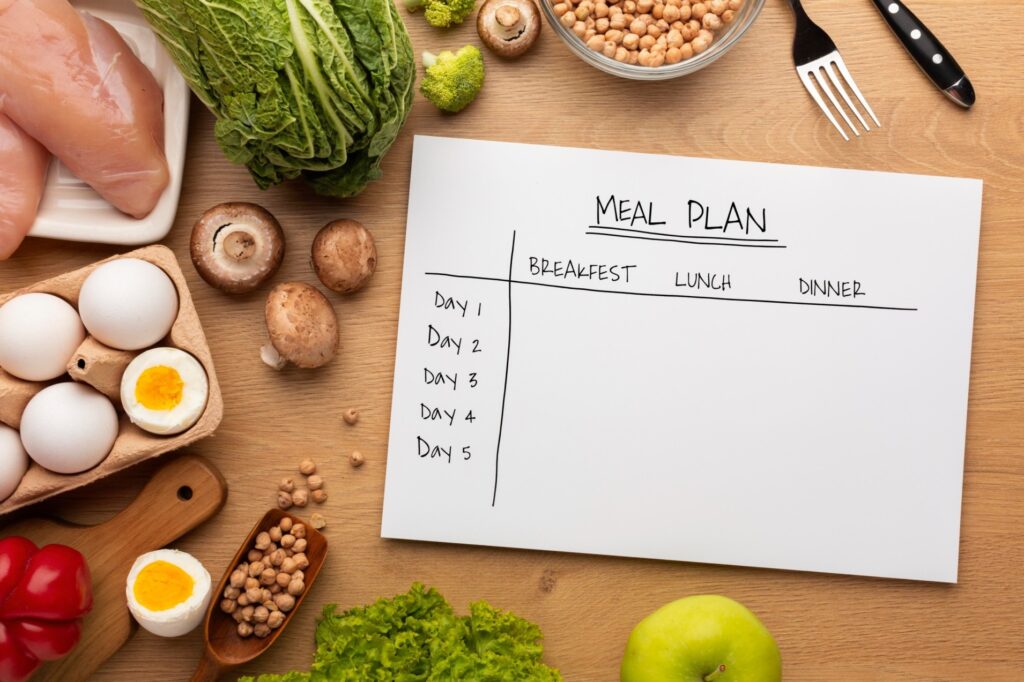
What Are Fungal Infections And Why Does Diet Matter
Fungal infections can manifest in many ways. Some are mild, like athlete’s foot or a rash. Others can be serious, like thrush or infections inside the body. A fungus called Candida is often to blame, but many others exist. Anyone, including kids, adults, and seniors, can be affected.
What you eat may help your body fight these infections. Food can feed the fungus or help your immune system keep it in check. It’s not magic, but diet can make a difference, especially when used along with the right medicine.
Understanding Candida And Other Fungi
Candida lives in our gut, mouth, and even on our skin. Most of the time, it’s harmless. But when things go out of balance—too much sugar, stress, illness—Candida can grow too much. This can cause itching, redness, or other problems.
Other fungi can act the same way. The best diet for fungal infections aims to bring your body back into balance, starving the fungus and giving your healthy gut bacteria what they need.
Why Sugar And Refined Carbs Make Fungi Happy
Fungi love sugar. It’s their favorite food. When you eat a lot of sweets, pastries, sodas, or white bread, you give them what they need to grow. Cutting back on these foods is the first step.
Many people with fungal infections notice that their symptoms get worse after eating sugar or lots of white flour. Eating a lot of processed food can also upset your gut, which makes it easier for fungus to spread.
The Science: Can Diet Help With Fungal Infections?
Doctors agree that food alone won’t cure a tough fungal infection. But many studies show that a diet low in sugar and high in fiber can support your gut health. Good bacteria thrive on fiber and can help keep fungus in check.
Some foods, like coconut oil, have natural antifungal effects. Probiotics (found in yogurt or kefir) help balance gut bacteria. Still, you should always pair these changes with medicine if your doctor prescribes it, especially with serious infections.
Foods To Eat: Building A Healing Diet

➡️ Non-Starchy Vegetables & Low-Sugar Fruits
- Broccoli, kale, spinach, zucchini, and cucumbers are safe bets.
- Berries, like blueberries and strawberries, are the best fruits in small amounts.
- These foods are rich in fiber and antioxidants.
➡️ Lean Proteins And Healthy Fats
- Skinless chicken, fish, eggs, tofu, and lentils provide the protein your body needs to repair.
- Healthy fats like olive oil, coconut oil, and avocado help your body absorb vitamins.
➡️ Fermented Foods & Probiotics
- Yogurt with live cultures, kefir, sauerkraut, and kimchi boost good bacteria in your gut.
- Probiotics can make your gut less friendly to fungus.
➡️ Gluten-Free Whole Grains, Nuts & Seeds
- Quinoa, buckwheat, flaxseed, and pumpkin seeds are good choices.
- Almonds, walnuts, and chia seeds add fiber, but always watch for mold if you store nuts for a long time.
Foods To Avoid: What Makes Fungal Infections Worse

➡️ Added Sugars & Refined Carbs
- Sodas, cakes, cookies, candies, and anything made with white flour feed fungi.
- Sweeteners like honey or maple syrup are not safe either.
➡️ High-Sugar Fruits & Starchy Veggies
- Bananas, grapes, and dried fruits contain too much sugar.
- Potatoes, corn, and peas are also best left out for now.
➡️ Unhealthy Fats, Alcohol & Caffeine
- Fried food, margarine, processed snacks, and fast food add stress to your system.
- Beer, wine, and spirits may trigger yeast growth. Too much coffee can upset your gut, too.
➡️ Dairy With Lactose, Processed Meats & Moldy Nuts
- Whole milk, cream, soft cheeses, and processed deli meats can make symptoms worse.
- Some nuts, especially if old, may have mold—throw away anything with a musty smell.
Sample Meal Plan For Fungal Infections

Breakfast:
- Scrambled eggs with spinach and tomatoes
- A small bowl of blueberries
Lunch:
- Grilled chicken with a big salad (greens, cucumbers, olive oil)
- Quinoa or buckwheat on the side
Snack:
- A small handful of pumpkin seeds
- Yogurt with live cultures
Dinner:
- Baked fish with broccoli and roasted carrots
- Sliced avocado
Drink plenty of water. Try to keep meals regular and simple.
Tips For Starting A Fungal-Fighting Diet
- Go slow. Switch one meal at a time.
- Track your symptoms in a notebook.
- Try new foods in small amounts to see how your body reacts.
- Ask your doctor before making big changes, especially if you’re on medication.
Medication & Diet: How Itraconazole Fits In
Doctors often prescribe Itraconazole to treat tough fungal infections. This medicine attacks the fungus directly, while your diet helps your immune system work better.
Don’t use Itromed 100 mg without your doctor’s advice. The right dose and length of treatment depend on the infection and your health. You should never stop or change your medicine based on what you read online.
Eating well can help your medicine work better. But always tell your doctor about any changes in your diet or supplements. Some foods or herbal products can interact with prescription drugs.
Safety, Risks & When To See A Healthcare Provider
Some people feel tired or get headaches as they start a low-sugar diet. Others may notice constipation or loose stools as gut bacteria change. These symptoms usually pass, but you should talk to a dietitian if you’re worried.
If you have a weak immune system, diabetes, or a severe infection, don’t rely on food changes alone. Only a doctor can guide you safely. If your symptoms get worse or you have a fever, rash, or trouble breathing, seek help right away.
FAQs About Diet For Fungal Infections
1. What Is The Best Diet For Fungal Infections?
A low-sugar, high-fiber diet with lean proteins, healthy fats, and lots of vegetables helps most people. Fermented foods and probiotics also support gut health.
2. Can Sugar Make Yeast Infections Worse?
Yes, sugar and processed carbs feed fungus. Cutting back often leads to fewer symptoms.
3. Is Coconut Oil Helpful For Fungal Infections?
Some research shows coconut oil has anti-fungal effects. You can use it for cooking or as part of your meals.
4. How Long Should I Stay On This Diet?
Stay on the diet until your symptoms clear, then slowly reintroduce other foods. Always check with your doctor for advice.
5. Can I Take Probiotics And Itraconazole Together?
Usually, yes. Probiotics can help restore balance. Always talk to your doctor before starting new supplements with prescription medicine.
Last Tips
Your diet can make a real difference when fighting fungal infections, but medicine—like Itromed 200 mg —is often needed for lasting results.
Keep meals simple, cut back on sugar, and focus on whole foods. If you have any health concerns, talk to your doctor or a qualified dietitian.

